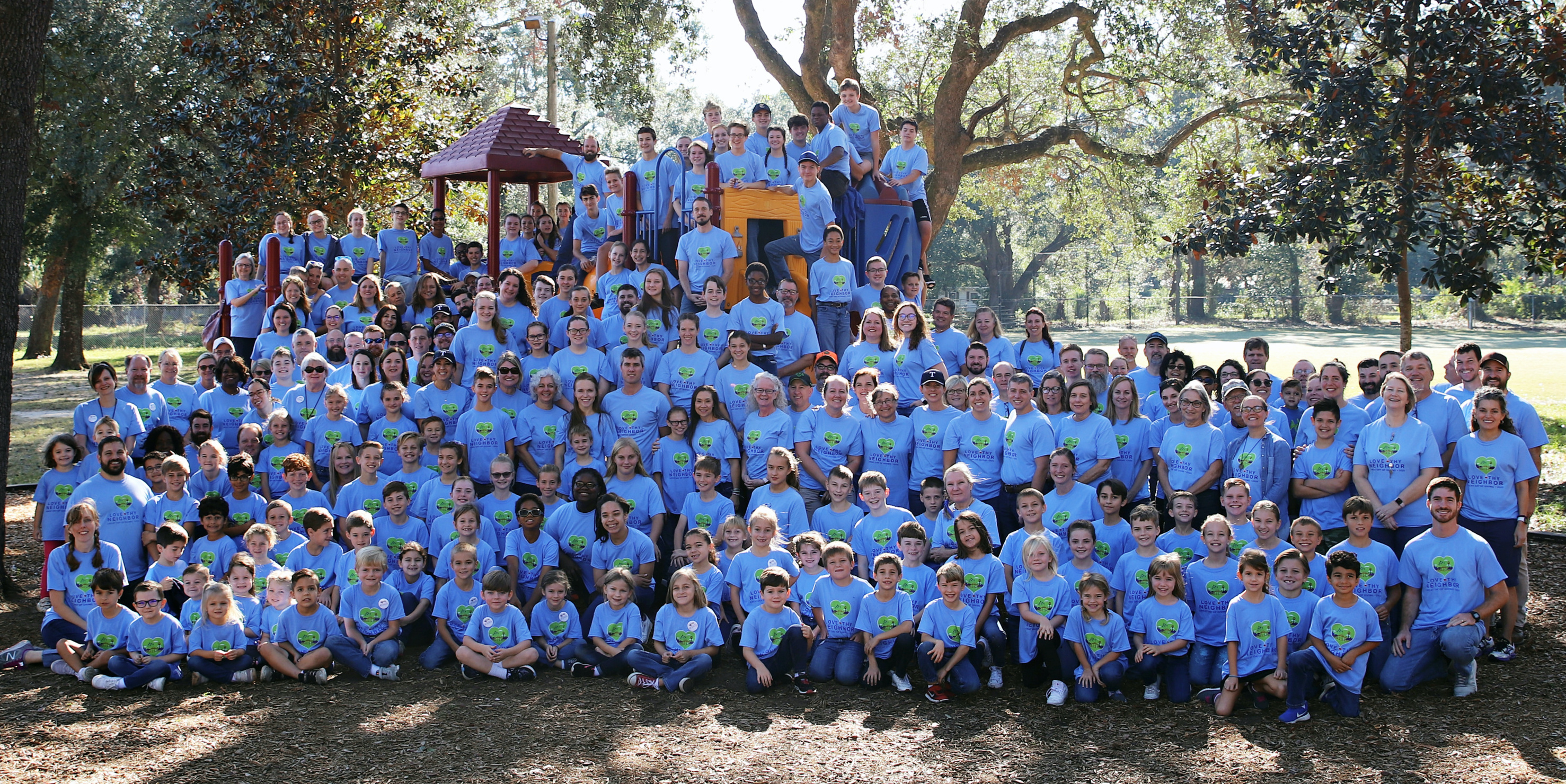Routines help to define a people. A group of market traders begins combing the news even before the trading bell rings at 9:30 a.m., hungry to get an edge on making the right move at the right time. A covey of construction workers share donuts and coffee before hitting the site for the day’s labor. A pack of public school kids rise from their seats to recite the pledge of allegiance and hear the crackle of morning announcements over the intercom. Routines do not require much attention to the routine itself—routines become second nature, an involuntary way of being in the world. Because we know that routines have the power to shape our orientation to the world, Trinitas starts the day with our own routine to orient and shape our way of being for the day ahead.
Trinitas

Recent Posts
In a few short weeks, nearly 300 members of the extended Trinitas family including students, parents, grandparents, faculty, and alumni will take a break from normal educational routines at Trinitas and complete a full day of sponsored community service at over ten local non-profit organizations. In preparation for the 3rd Annual LoveThyNeighbor - Great Day of Giving event, a little background into how the event came to be is in order.
Topics: Blog Posts, School Life, Community Service
At a recent Annual Parent Meeting, Trinitas father and board member, Pastor Jon Mark Olesky, reminded us of the timely importance of Christian parents educating their children to engage their world. This is the third of three posts containing his comments.
The teaching needed is what is most often called, “wisdom” (Hb. khokmah). Many compromises will occur in Babylon without this wisdom. In the covenantal framework of Proverbs wisdom means skill in godly living. Proverbs, that often-neglected parenting book, the “father” repeatedly call his “son” to “find wisdom” (Prov 3:13), that is because children aren’t born possessing it, rather, “folly is bound up in the heart of a child” (and yes, “the rod of discipline” is needed to remove it!) (Prov 22:15). No, a foolish teenager doesn’t just “grow out of it,” wisdom must be given and received. Our children’s lives depend on it! “The teaching of the wise is a fountain of life, that one may turn away from the snares of death” (Prov 13:14). It’s the way a young man avoids “the forbidden woman” (Prov 5 and 7), and that is because “the fear of the Lord is the beginning of wisdom” (Prov 9:10).
Topics: Blog Posts, Parenting, Scripture, Christian Education
At a recent Annual Parent Meeting, Trinitas father and board member, Pastor Jon Mark Olesky, reminded us of the timely importance of Christian parents educating their children to engage their world. This is the second of three posts containing his comments.
The context of preparation for Babylonian exile is significant. Providentially, these four youths entered Babylon in (605B.C), having been exiled out of Judah, after the Reforms of King Josiah, which he led until his death in (609 B.C). These young men were not trained under the long list of Apostate Kings of Israel “who did what was evil in the sight of the Lord” (2 Kings 8–17); but under King Josiah, who arguably surpassed David in Kingly righteousness since he had no public scandal (2 Samuel 11), and “before him, there was no king like him, who turned to the Lord with all his heart…according to all the Law of Moses, nor did any like him arise after him” (2 Kings 23:25).
Topics: Blog Posts, Parenting, Scripture, Christian Living
At a recent Annual Parent Meeting, Trinitas father and board member, Pastor Jon Mark Olesky, reminded us of the timely importance of Christian parents educating their children to engage their world. This is the first of three posts containing his comments.
“I don’t want to bring kids into this evil culture” is something I have heard more than once. Well-meaning Christians have long questioned the wisdom of bringing children into a fallen world. And while this hesitation might seem prudent, God doesn’t hesitate to command husband and wife, “Be fruitful and multiply and fill the earth” (Gen 1:28; 9:1). The earth is, no longer a utopian Eden, but a post-Eden wilderness, what the New Testament calls “Babylon” (Rev 17:5, 1 Pet 5:13-14). This Babylonian context isn’t foreign to children raised in covenant homes. The historical nation of Babylon was where the Jewish exiles were sent. Of those exiles, the most notable were four Jewish “youths… Daniel, Hananiah, Mishael, and Azariah of the tribe of Judah” (or their Babylonian names) “Belteshazzar, Shadrach, Meshach, Abednego” (Dan 1:1-7).
Topics: Blog Posts, Parenting, Scripture, Christian Education
People come and people go. That is a truth in any organization. It is human nature, I suppose to some extent, for people to get interested in a thing, even convinced about a thing, then lose interest or become unconvinced over time. Because it is enrollment season and families are deciding whether or not they ought to attend Trinitas, I want to spend the next few weeks focusing on some of the top reasons people give for losing interest in and leaving Trinitas.
Topics: Blog Posts, Classical Education, True Education, Christian Living, Grades, Admissions, Virtue
 As varsity sports seasons get underway this weekend, I want to remind you what it means to represent Trinitas as a fan. You can find a thorough explanation of “The Ideal Trinitas Sports Fan” in the Family Handbook, but I want to give you a few quick reminders.
As varsity sports seasons get underway this weekend, I want to remind you what it means to represent Trinitas as a fan. You can find a thorough explanation of “The Ideal Trinitas Sports Fan” in the Family Handbook, but I want to give you a few quick reminders.
Topics: Blog Posts, School Life
Last week I introduced the term father famine to this blog. The term I have only recently heard from my pastor; the idea the term denotes I have observed for years. The term fitly describes the absence of fathers and fathering in our culture. We have developed cultural amnesia, and one of the things we’ve forgotten, which is key to any culture, is fathering. By “we” I mean western culture generally, but to be more specific, I mean Christians seem to have forgotten the importance of fathering and, therefore, how to father. There is a dark irony in this Christian forgetfulness. The obvious irony is that fathering ought to be on our minds all the time because we speak of and look to God as our Heavenly Father; the subtler irony is that remembering is a predominant theme throughout Scripture.
Topics: Blog Posts, Parenting, Christian Living, Parent Involvement

.jpg)


-1.png)


